What if men had periods? What if men experienced the menopause? Wouldn’t there be more research, investment and resource spent on managing their impact on health and wellbeing? The Femtech revolution is finally redressing a serious imbalance in the way women are treated and cared for by the healthcare industry. But who is leading the way in empowering innovation?
What is Fem Tech?
Femtech describes a range of digital products, services and devices designed to help women own and self manage their wellbeing and healthcare. Femtech aims to give women control over their outcomes in ways that formal care systems have denied them over the centuries.
Why Fem Tech matters
In the 1970s feminists like Gloria Steinem pointed out how discussions around women’s bodies and bodily functions had been marginalised and made taboo by wider society. And it’s exactly this prejudice and silence that many argue has been responsible for centuries-old gender health inequalities.
Historically, women’s health outcomes have been significantly poorer than men’s, something that has persisted to the present day :
- 93% of the most underfunded health conditions in the world affect mainly women
- Until the 1990s the FDA excluded women of childbearing age from clinical trials
- 84% of women still believe they are not being listened to by health professionals
Years of prejudice and taboo around menstrual and reproductive health, together with a lack of substantive research investment into women’s health issues has led to a lack of progress in care and treatment.
Tech giants have ignored women’s healthcare needs
Even when tech giants began to disrupt the rest of the medical space with new and exciting self-care products, these disruptors still largely ignored the specific needs of women.
When Apple Health went live in 2014, senior VP of software engineering Craig Federighi told users of their iPhone, “You can monitor all of the metrics that you’re most interested in.”
But these metrics did not include period tracking.
Fem Tech entrepreneurs lead the way
Instead, it has been left to more forward-thinking start-ups to research and ideate solutions often based on the personal experiences of female entrepreneurs.
The Femtech sector is redressing a historic imbalance, dealing with the following areas to put women in control of their own data and treatment:
- Menstrual health
- Pelvic and sexual health
- Fertility
- Maternal health
- Cancer detection
- Menopause
- Contraception
Evidenced by the size of the market, these developments are meeting massive pent up demand. By 2027, the global femtech market is expected to reach a value of $60b+ (up from $22b in 2020).
11 Femtech companies that are driving change in the industry
Here are just a few of the companies and products that are looking to empower women with more holisitic data, driving targeted health care tech options that properly reflect the needs of 50% of the population.
1. Clue
It was entrepreneur Ida Tin, who actually coined the term ‘Fem Tech’ in 2016. Her platform Clue, was widely regarded as the world’s first period tracking app. This tech is still helping women track their own cycles and make more informed decisions around health, fertility, fitness and self-care.
What’s more, the data they are collecting is now being used in a wider context to inform medical R&D, improving treatments and outcomes for others. As Tin said in a recent interview:
At Clue, we’re excited to be using anonymised user data to further scientific research. When women track their period through Clue, they contribute an unprecedented data set that is essential for continuing our understanding of female health.
2. Breathe Ilo
Breathe Ilo is a tech-driven wellness company for women. Their device measures CO2 levels in the breath of users and transmits the data to a smartphone app to report on the hormone levels that indicate fertility status. The self-learning algorithm gets to know the user better with each cycle, helping make its predictions ever more accurate. Their non-invasive solution to fertility tracking is a new approach in an exciting market.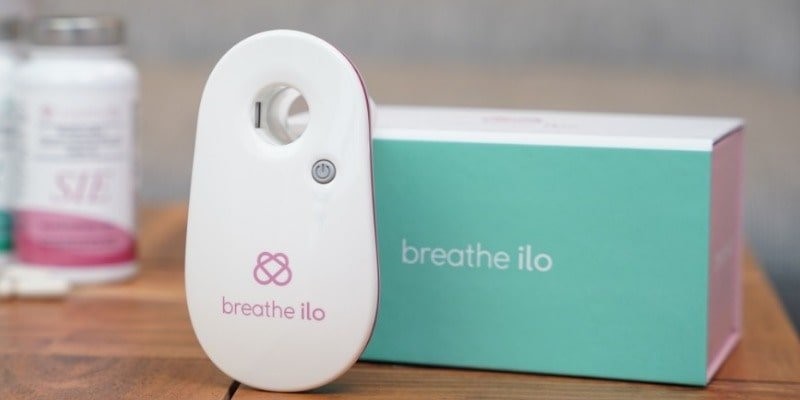
3. Femtec Health
Among a whole suite of products intended to offer braided support for woman’s wellness, Femtech have recently acquired the company Ava and their wearable fertility bracelet. This product is approved by the FDA for tracking fertility cycles using 5 physiological signals to pinpoint the five best days to try for a baby.
4. Vio HealthTech
Vio HealtTech produces the Ovusense family of fertility monitors, including a wearable device and a monitor that is inserted vaginally to track progesterone levels throughout the night. The accompanying app then predicts ovulation in real time to give users the maximum chance of conception.
5. Lady Technologies
Lady Technologies are the brains behind Kegg, a tracking kegel device that helps women pinpoint their fertile window and predict ovulation 5 to 7 days in advance. It is a rechargeable, insertable device that is used once a day, for less than 2 minutes to monitor fertility levels. The company uses advanced sensor technology, known as impedance spectroscopy, to detect changes in vaginal fluids including cervical mucus.
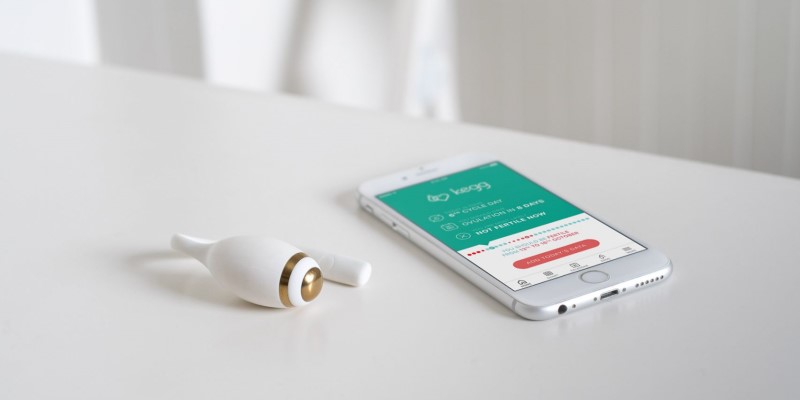
6. Lia
Making pregnancy tests cheaper, more accessible and more sustainable is an important step for female empowerment and a major challenge for the IVD world. Lia may be the answer to these linked challenges. Described as the “future of pregnancy testing”, the FDA-approved Lia at-home pregnancy test is made from plant fibres – such as are used in toilet paper. The device weighs less than six squares of standard toilet issue, while still providing 99% accuracy. It also degrades after just ten weeks.
7. Bloomlife
Bloomlife are building a complete, remote prenatal care platform using the most advanced combination of technology, data science, and medical expertise. Among their products include a wearable and accompanying app for wirelessly monitoring contractions in real-time. Handing women control of this kind of data during pregnancy and child birth brings confidence and allows for informed decision making at critical times.
8. Coroflo
Coroflo has developed a breastfeeding monitor that lets mothers know how much milk is flowing through to the baby when they suckle. The device, connected to a smartphone app, lets users track flow in real time and compares results with how much babies of similar ages typically consume to flag if there any issues.
9. Isono Health
Femtech is not just about delivering devices for personal use. It also means improving the portability and usability of more ‘heavy-duty’ medical apparatus, too. Isono health are making mamograms less stressful and more accessible to more women in different settings with their compact ultrasound scanner. Their ATUSA scanner captures 3D images through automatic scanning of whole breast volume in just a minute, relaying data in real time to a mobile app. The device can be operated and results can be interpreted by non-specialist operators providing point-of-care diagnostics as well as monitoring breast health at home, walk-in and mobile settings.
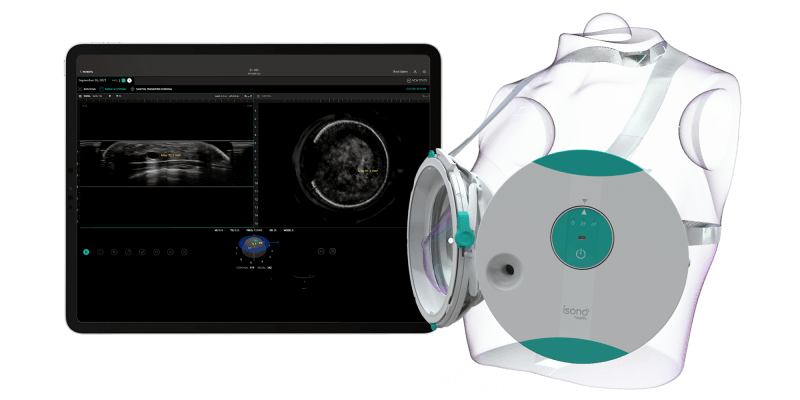
10. Dotplot
Dotplot is a handheld breast monitoring device created by students at Imperial College to help women conduct more effective, home-based breast cancer checks. Their app works together with the self scanning device to build a changing map of the torso, using data to highlight any abnormalities developing in the tissue.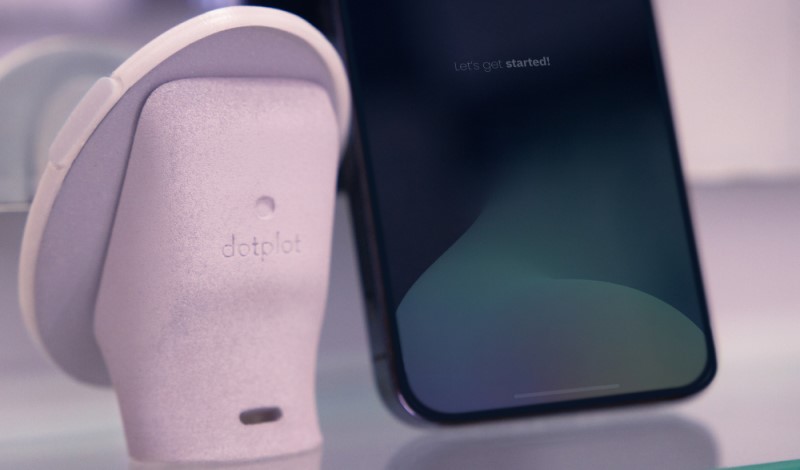
The dotplot app guides women through the self-check by showing which areas they need to scan… This real time feedback feature is critical for assuring women that they have checked over every region.
This award winning, lightweight device is now a viable consumer product that promises to transform the quality of women’s self-checking regimes, leading to earlier detection and better long term health outcomes.
11. Endomag
In the surgical realm, the Cambridge-based company Endomag continues to support the treatment of women with cancer and drive better outcomes. Where once invasive surgery was the default option in many cancers that affect women, a novel procedure now allows a ‘tiny magnetic seed to be placed into patient lymph nodes known to contain cancer’. This novel technique, using cutting edge nano-tech allows surgeons to monitor the response of targeted lymph nodes to chemotherapy without the need for upfront invasive surgery, such as a complete removal of underarm nodes.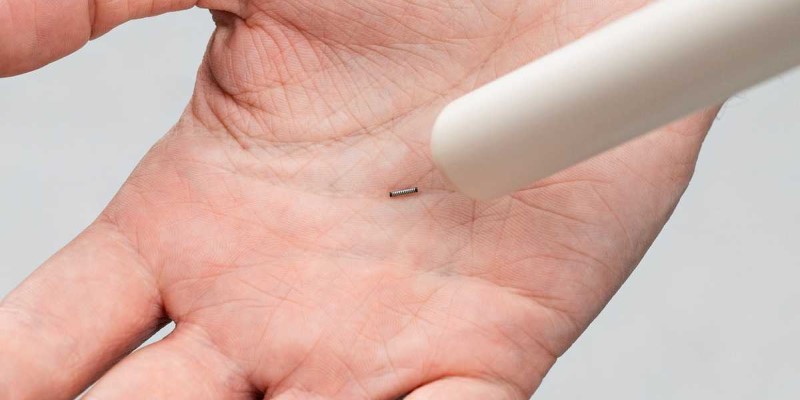
Conclusion
Femtech can be seen to run the full gamut of medical devices as it changes the landscape of women’s healthcare. The technology encompasses everything from mobile apps, powered with sensor data to support self-care, to cutting-edge cancer detection devices that are transforming long-term medical outcomes for many. It’s the just beginning of a journey to empower women around the world with more effective and targeted healthcare that more exactly meets their needs.


